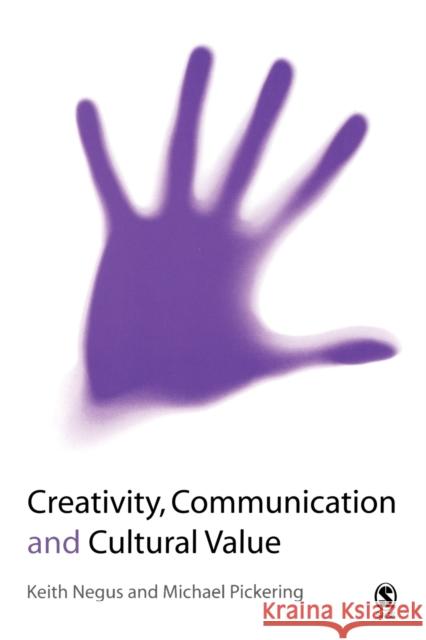Creativity, Communication and Cultural Value » książka
Creativity, Communication and Cultural Value
ISBN-13: 9780761970767 / Angielski / Miękka / 2004 / 192 str.
Creativity, Communication and Cultural Value
ISBN-13: 9780761970767 / Angielski / Miękka / 2004 / 192 str.
(netto: 199,30 VAT: 5%)
Najniższa cena z 30 dni: 186,33
ok. 22 dni roboczych.
Darmowa dostawa!
'There have been few critical engagements with the concept of creativity in recent years, so the authors provide an important contribution in drawing attention to what is arguably at the heart of much of what we most value in culture' - Douglas Kellner, University of California, Los Angeles 'In this important book, Keith Negus and Michael Pickering challenge commonplace assumptions about creativity and casual invocations of genius. They give comfort neither to popular wisdom nor to academic convention. Drawing on the work of philosophers, sociologists, political theorists and economists, as well as artists, musicians and novelists, they raise profound questions about the very ideas which sustain our understanding of art and culture' - Professor John Street, University of East Anglia 'It's all too rare to read a cultural studies book that offers any real originality. This one achieves this, not only by addressing debates and sources neglected in the field, but also by traversing high and low culture, and all points between' - Dave Hesmondhalgh, The Open University Creativity has become a buzzword and key issue in debates about cultural policy, human growth and the media and cultural industries. It has also become a very misused term used to describe anything from musical and artistic genius, to shady financial accounting, to the teaching of children and the management of employees. But what does it mean? Negus and Pickering provide a clear and logical way of understanding what we describe as creative, and how this term has become central to attaching cultural value. Their book: - Develops an approach which enables us to think of creativity as both ordinary and exceptional - Focuses on creativity as a way of rethinking key concepts in the study of culture such as: Convention; innovation; tradition and experience. This book is useful to those studying Media and Cultural Studies who need to understand Cultural Production, Communication, Popular Culture and Cultural Theory.











